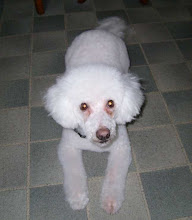I absolutely adored this book. I found it to be an extremely honest and heartbreaking story of a young Sudanese Lost Boy as he walked hundreds of miles to get out of war-torn Sudan only to fall victim to regime change in Ethiopia and eventually goes to a refugee camp in Kenya. He eventually is chosen by the UN's resettlement program to go to the United States. It's definitely a novel; the main character in the book is very closely based on the life of his namesake: Valentino Achak Deng. Still, Eggers and Deng came to the conclusion, due to their recognition of Deng's potentially-faulty memory regarding the order of events and so on as well as their understanding that it's generally impossible to remember conversations and dialogue from that long ago. I found that Deng and Eggers' assertion that this book is fiction to be very honest; in addition, it also allows you to read and really absorb the story without having to doubt the validity of everything that happened.
There is one element of this novel that I'd really like to focus on: the depictions of the U.S. and the Sudanese refugee situation in this country. I read quite a few reviews on sites like Amazon and others, and it seems most people are frustrated by Deng's complaining about the problems he and other refugees have faced in the U.S.: cultural differences, inability to find jobs that actually meet expenses, ageism within the college admission process (Deng recounts an admission officer speaking off of the record about the potential of admissions people not wanting a 27-year-old living on campus with 18-year-old girls), being victims of crimes, etc. I think people expected to see a good-bad dichotomy between the U.S. and Sudan, and when Deng dared to state that life in the U.S. was not easy, I think he broke away a bit from this expectation, leading to some anger among readers. Personally, I believe that the criticisms of the U.S. system of placing refugees, supporting them for 6 months, then leaving them to fend mostly for themselves is generally problematic. Deng benefited from learning English in the refugee camps, but most refugees coming into the U.S. don't have English education and, moreover, have some serious emotional and mental problems that they should be able to deal with before having to necessarily find a job, education, and affordable housing (made even more difficult by the policy of sending refugees to cities -- extremely high housing prices are everywhere in major cities).
In general, I thought this book was fantastic. Several times I had to stop reading and just absorb what was happening; my general idealism tends to take some major hits when I read about the horrible things that some human beings can do to others in the name of religion, cultural warfare, and general ignorance. In this novel, it goes both ways; Eggers is almost as equally critical of the government as he is of the rebel forces (although, he seems to disfavor the Sudanese government forces more), because neither side is absolutely innocent in these crises. And Deng's experiences are somewhat better -- although he still witnesses death and horrible tragedy -- because he successfully evaded being a child soldier in the conflict. I really hope to supplement this book by a memoir or some other non-fiction about the Lost Boys of Sudan, finding the similarities and differences between the two approaches. But generally What is the What is totally worth the read.
My rating: 9.5/10
Up next: The Good Earth by Pearl S. Buck
Subscribe to:
Post Comments (Atom)

Hi Lauren! Thanks for stopping by my blog, which is great because now I get to discover yours!
ReplyDeleteI really really loved What is the What, too! I've been shamelessly plugging it in my blog every chance I get, lol. It's one book that's really changed my life. It led me to read Angelina Jolie's Notes from My Travels, where she journals her visits to war-torn countries.
I also will be reading Daoud Hari's The Translator very very soon. And Ishmael Beah's A Long Way Gone. And all because of What is the What.